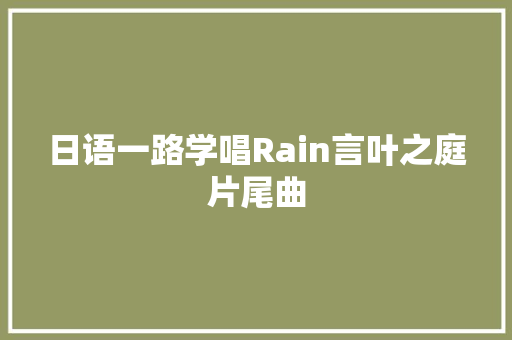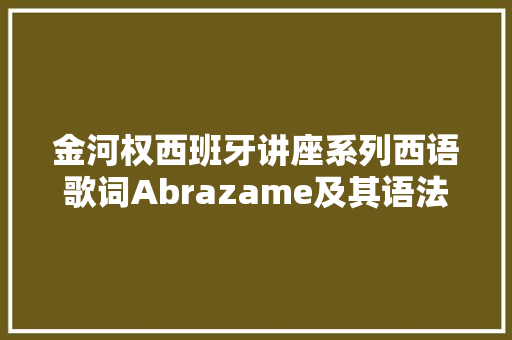【重点短语】
1 something to drink一些喝的东西

2 have some more food再吃点儿食品
3one ofmy best friends我最好的朋友之一
4 be willing to share things with her friends乐意和她的朋友分享东西
5 help me with my homework帮助我做家庭作业
6 give her seat on the bus to someone in need在公共汽车上把她的座位让给有须要的人
7 grow up终年夜,发展
8 make sb. look smart是某人看上去聪明
9 have a good sense of humour有很强的诙谐感
10 tell funny jokes讲有趣的笑话
11 walk past our desks经由我们的课桌
12 knock…onto…把……撞到……上
13 say a bad word about sb.讲某人的坏话
14 keep a secret守旧秘密
15 travel around the world环游天下
16 both my neighbour and my best friend
17 feel bored or unhappy感到无聊或烦懑活
【重点句型】
1 There’s nothing in the fridge.冰箱里没有东西
2 He tells funny jokes and always makes me laugh.他讲风趣的笑话而且总是使我大笑。
3 When he walks past our desks, he often knocks our books and pens onto the floor.
当他经由我们的课桌时,常把我们的书和钢笔撞到地上。
4 When something worries me, I can always go to her.当某事使我担心时,我总是去找她。
5 I can tell her anything because she can keep a secret.我能见告她任何事情,意为她能守旧秘密。
6 My book is moreinterestingthan his.我的书比他的有趣。
7 I would like to be a social worker when I grow up.当我终年夜的时候,我想成为一名社会事情者。
8 She always has a smile on her face and looks happy.她脸上总是带有微笑而且看上午很高兴。
【重点语法】
形容词比较级和最高级规则变革:
①多数单音节形容词=词尾加er或est
longtallclean
长的高的干净的
longertallercleaner
较长的较高的较干净的
longesttallestcleanest
最长的最高的最干净的
②以e结尾的单音节形容词--------词尾加r或st
largelatenice
大的晚的好的
largerlaternicer
较大的较晚的较好的
largestlatestnicest
最大的最晚的最好的
③以重读闭音节结尾,且结尾只有一个辅音字母的形容词-------双写这个辅音字母,再加er或est
bighotthin
大的热的瘦的
biggerhotterthinner
较大的较热的较瘦的
biggesthottestthinnest
最大的最热的最瘦的
④以“辅音字母+ y”结尾的形容词----------变y为i,再加er或est
easybusyangry
随意马虎的繁忙的生气的
easierbusierangrier
较随意马虎的较忙的较生气的
easiestbusiestangriest
最随意马虎的最忙的最生气的
⑤两个或两个以上音节的形容词-------- more/most +形容词原级
beautifulimportant
俏丽的主要的
more beautifulmore important
较美的较主要的
most beautifulmost important
最美的最主要的
不规则变革:good/well---better---best, bad/badly---worse---worst,
many/much---more---most, little---less---least,
far---farther/further---farthest/futhest
形容词原级,比较级和最高的用法:
1当两者进行比较时,常日用形容词的比较级形式,其后用than引出比较的工具。形容词比较级前常用much,a lot,even等润色。‘比较级+and+比较级’表示‘越来越……’;‘the+比较级,the+比较级’表示‘越……,越……’。
2当三者或三者以上的人或事物进行比较,表示‘最’的意思时,用形容词最高级形式,且最高级前面必须要有定冠词the,在利用形容词最高级时,后面常日接‘of.../in…’,表示比较的范围。当比较的范围与主语是同一类人或物,或属于同一观点是,要用介词of勾引的短语;当比较的范围与主语不是同一类人或物,强调在某一范围或场所内进行比较时,要用介词in勾引的短语。
第二单元:School life
【重点短语】
1 fewer advertisements广告少些
2 a mixed school一所稠浊学校
3 a Reading Week一个读书周
4 bring in books andmagazines带来书和杂志
5 near the end of…在……快要结束时
6 offer me help给我供应帮助
7 read an article by a boy from the USA读了一个美国男孩的文章
8 spend time on/doing sth.花韶光做某事
9 have fewer weeks off有更少星期的休假
10 at most最多
11 look through浏览,快速查看
12 at first起初,首先
13 keep (on) doing sth.连续,重复做某事
14 have lots of time for after-schoolactivities有许多韶光进行课外活动
15 at lunchtime在午餐韶光
16 go on a school trip参加学校旅行
【重点句型】
1It’slike watching TV, but there are fewer advertisements.就像看电视一样,但有更少的广告。
2 Learning foreign languages is fun.学习外语是有趣的。
3 Near the end of the week, we discuss the books with our classmates in class.在这一周快要结束的时候,我们在教室上与同班同学一起谈论这些书。
4 Times seems to go faster when we are reading interesting books.当我们在读一些有趣的书的时候,韶光彷佛过的很快。
5 He often listens carefully to my problems and offers me help.他常常负责地听我的问题,并给我供应帮助。
6 I read an article by a boy from the USA.我阅读了来自一位美国男孩的文章。
7 Millie has the least juice.米莉的果汁最少。
8 I also keep writing in English about my daily life.关于我的日常生活,我也一贯用英文书写。
9 Millie has more tomatoes than Daniel.比起丹尼尔,米莉有更多的西红柿。
【重点语法】
1用形容词的比较级计较两件事物的数量:
More…than可润色可数名词复数形式,也可润色不可数名词;
Fewer…than润色可数名词复数形式;
Less…than润色不可数名词
2用形容词的最高级比较三件或三件以上的事物的数量
The most可润色可数名词复数形式,也可润色不可数名词
The fewest润色可数名词复数形式
The least润色不可数名词
3副词的比较级和最高级
不规则变革:well---better---best; badly---worse---worst;
far---farther/further---ferthest/furthest
第三单元:A day out
【重点短语】
1 need to exercise须要磨炼
2 keep fit保持康健
3 come on来吧,赶紧
4 enjoy oneself玩的愉快
5 take a boat trip坐船旅行
6 have a great time玩得愉快
7 invite sb. to do sth.约请某人做某事
8 a lot of traffic交通繁忙
9 arrive in/at到达
10 get off下车
11 in front of sb在某人前面.
12 all over the world环球
13 be made of…由……制成
14 not believe one’s eyes不相信某人自己的眼睛
15 home page主页
16 keep sth. to oneself守旧……
17 take place发生
18 take the underground乘地铁
【重点句型】
1 Soon the whole world was there in front of us!不久全体天下涌如今我的面前!
2 There are models of more than a hundred places of interest from all over the world.来自天下各地的100多个名胜古迹的模型。
3 Mr. Wu is as happy as the two girls.吴师长西席与两个女孩一样高兴。
4 Simon is trying to pull himself up the rocks.西蒙正努力往岩石上爬。
5 Don’t forget to bring your friends!不要忘却带你(们)的朋友!
6 With your support, we will win!拥有你们的支持,我们会赢!
7 My ticket is useless now, but I’ll keep it!我的票现在没用了,但我会保留着它!
8 We are planning a day out on Saturday, 16 October.我们操持在十月十六日,星期六外出一天。
9 We hope you can join us.我们希望你们能加入我们。
【重点语法】
1表示两者在某一方面相同时用‘as+形容词原级+as’的句型。表示一方在某一方面不及另一方时用‘not as/so +形容词原级+as’的句型。
2当宾语和主语指向同一人或同一些人时利用反身代词
反身代词的基本形式:
人称单数复数第一人称myselfourselves第二人称yourselfyourselves第三人称himself, herself, itselfthemselves
第四单元:Do it yourself
【重点短语】
1 had better最好
2 stand for代表;象征
3 instead of而不是,代替
4 make some paper roses制作纸玫瑰
5 a pair of scissors一把剪刀
6 be crazy about对……着迷
7 put in安装
8 make a mistake犯缺点
9 fill…with…用……填装
10 paint it blue把它涂成蓝色
11 not only…but (also)不仅……而且……
12 cut…into把……切成
13 for example例如
14 next door在隔壁
15 tidy up整理好
16 keep it secret保密
17 keep doing sth.反复做某事
18 in the end末了
【重点句型】
1 Here are clear instruction.这儿有清楚的指示、
2 You’d better get some tools.你最好拿一些工具
3 When you do DIY, you make, repair of decorate things yourself instead of paying someone to do it.当你‘自己动手做’的时候,你自己做,修理或装饰东西,而不是付钱给别人做。
4 Now the living room has not only blue walls but also a blue ceiling and floor.现在起居室不仅是蓝色,连天花板和地板也是蓝色。
5 They couldn’t stay therebecauseone end of the shelf was much higher than the other!它们不能呆在那儿,由于架子的一端比另一端高!
6 Don’t paint the cat.不要给猫涂色
7 Cut some of the larger fruit into small pieces.把一些较大的水果切成小块状。
8 Let’s make some sandwiches.让我们制作一些三明治
9 I’m certain that I can fix it myself.我相信我自己能修理。
10 We had fun working together.我们在一起事情很愉快。
【重点语法】
1祈使句
祈使句省略主语you,句首的动词用动词原型。
否定祈使句在句首加don’t。
2 should和had better
①should表示‘应该,该当’后接动词原形
②had better意为‘最好,该当’后接动词原型,否定形式:had better not do sth.
第五单元:Wild animals
【重点短语】
1 in the wild在野外
2 have/take pity on同情,怜悯
3 in fact事实上
4 look so cute看起来如此可爱
5 be born出生,出世
6 look like看起来像
7 at four months old在4个月的时候
8 not…any more不再……
9 in the beginning一开始
10 look after照顾照看
11 as a result因此
12 in danger处于危险中
13 take action采纳行动
14 right away立时,急速
15 build more panda reserves建立更多的熊猫保护区
16 make laws to protect pandas颁布法律保护熊猫
17 at birth出生时 出身时
【重点句型】
1 I may die without them.没有它们我会去世的。
2 They’re the kings of the animal world.它们是动物天下之王。
3 When Xi Wang was born, she weighed just 100 grams.当希望出生的时候,它只有100克重。
4 When she was six months old, she began to eat bamboo.当她六个月的时候,她开始吃竹子。
5 When she was 20 months old, she learnt to look after herself.当她20个月的时候,她学会自己照顾自己。
6 Sadly, giant pandas face serious problems in the wild.可悲的是,大熊猫在野表面对严厉的问题。
7 As a result, pandas may not have a place to live or food to eat.结果,熊猫可能没有地方居住或没有吃的事物。
8 We should take action right away.我们应该立即采纳行动。
【重点语法】
1情态动词may
May表示可能性,意为‘大概,可能’常用作肯定句中。
2动词不定式做宾语
当句中已经有谓语动词,而我们又要表达不止一个动作观点时,别的的动词可以利用非谓语形式来表达。动词不定式便是动词的一种非谓语形式,其基本形式是‘to+动词原形’。动词不定式在句中常作谓语动词的宾语,这一类的谓语动词常见的有:agree, choose, decide, forget, hope, learn, like, plan, refuse, remember, seem, want, wish, would like
第六单元:Birdwatching
【重点短语】
1 at the market在市场上
2 provide sth. (for sb.)(为某人)供应某物
3 all year round一年到头
4 in order to以便,为的是
5 lead to导致
6 less and less越来越少
7 keep finishing一贯钓鱼
8 as a result结果
9 the members of………的成员
10 changes in their numbers数目方面的变革
11 invite sb. to do sth.约请某人做某事
12 understand the importance of the wetlands理解湿地的主要性
13 take sth. with sb.某人随身携带某物
14 make sb. do.Sth.迫使某人做某事
15 a pair of binoculars一副望远镜
16 what else还有什么
17 write down写下,记下
18 call sb. on…按照……给某人大电话
【重点句型】
1 It is one of the world’s most important wetlands.它是天下上最主要的湿地之一。
2 The area provides food and cover for a lot of wildlife.这个地区为许多野生动物供应了实物和庇护所。
3 Some people want to make the wetlands smaller in order to have more space for farms and buildings.一些人想使湿地变得更小的目的是为农场和建筑物留出更多的空间。
4 Ever year, a lot of tourists go to Zhalong to watch the birds.每年,许多游客来扎龙不雅观鸟。
5 We need more people to count anddescribethe birds.我们须要更多的人来打算鸟和描述鸟类。
6 We hope this will help people understand the importance of the wetlands.我们希望这能帮助人们理解湿地的主要性。
7 Usually it takes hours to watch the birds. You may get thirsty.常日,不雅观鸟要花费数小时。你可能会渴的。
8 I am very interested in learningaboutdifferent kinds of plants, birds and animals.我对研究不同种类的植物,鸟类和动物是非常感兴趣的。
【重点语法】
1动词不定式表示目的
不定式和不定式短语作目的状语,紧张用来润色动词,表示某一动作或状态的目的。为了使目的意义更加清楚或表示强调意义时,还可以在前面加in order
2动词+宾语+动词不定式
许多动词后可跟一个宾语+ to do sth,但有些动词(感官动词和使役动词)后可跟不带to的不定式构成句子,动词help后的不定式可带to,也可不带to
第七单元:Seasons
【重点短语】
1 look cool看起来很酷
2 the rest time to do sth.做某事的最好韶光
3 in summer在夏天
4 go swimming去拍浮
5 be full of充满……
6 forget to grow忘却了成长
7 fly far away飞往远方
8 play among flowers在花丛中玩
9 turn brown变黄
10 rhyme with与……押韵
11 on a hot summer afternoon在一个酷热的夏天下午
12 drop below…低落到……以下
13 the lowest temperature最低温度
14 stay above zero在零度以上
15 a bit有一点
【重点句型】
1 I bet you’ll look cool and feel cool with nothing on!我赌你什么都不穿看起来会很酷并觉得很风凉。
2 It’s the best time to play footfall outside.它是户外踢足球的最佳机遇。
3 The days of spring are windy and bright.春天是风和日丽的时节。
4 What a perfect time to fly a kite!是放鹞子的绝佳机遇!
5 How do people feel on a hot summer afternoon?在酷热的夏天下午,人们觉得如何呢?
6 This is Aunt Jane speaking.我是简姨妈。
7 The temperature is usually below zero and it is often snowy.这里的气温常日在零度以下,并且常常有大雪。
8 It is exciting to have big snowball fights.打一场雪仗是很令人愉快的。
【重点语法】
动词及五种基本句型
句子的基本组成部分为:主语(S),动词(V)和宾语(O)。动词可分为行为动词(也称实义动词)和系动词,在句中可用作谓语。根据这两类动词用作谓语时的不同特点,可以将英语句子概括为五种基本句型。
连系动词:紧张是指be动词,感官动词(look,sound,feel,smell,taste)和表示‘变,变成’的动词(become,get,grow,turn)
行为动词:有实在的意义,可在句中独立作谓语,表示动作或状态。行为动词可分为及物动词和不及物动词。
五种基本句型:
1主语+谓语(S+V)
2主语+谓语+宾语(S+V+O)
3主语+连系动词+表语(S+V+P)
4主语+及物动词+间接宾语+直接宾语(S+V+IO+DO)
5主语+及物动词+直接宾语+宾语补足语(S+V+DO+OC)
第八单元:Natural disasters
【重点短语】
1 wake up醒来
2 crash into撞上……
3 fall from从……上跌落下来
4 mop up把……拖干净
5 wash away冲走
6 catch fire着火
7 feel a slight shake感到轻微震撼
8 run out of从……中跑出
9 in all directions四面八方
10 come down坍塌
11 not…at all一点也不
12 a moment of fear少焉的恐怖
13 calm down镇静下来
14 shout for help呼救
15 move away移开
16 find one’s way out找到出路
17 at last末了,终于
18 break down出故障,坏掉
19 because of由于,由于
20 as…as possible尽可能
【重点句型】
1 Who will mop up the water if I go home without you?如果你不跟我回家,谁将拖干水呢?
2 There was a heavy storm with thunder and lighting.有一场狂风雨,电闪雷鸣。
3 Lighting hit a classroom building and it caught fire.闪电击中了一栋传授教化楼,并引发了失火。
4 I was sleeping when the earthquake started.地震发生时我正在睡觉。
5 Outside, people were running in all directions while pieces of glass and bricks were failing down.表面,人们四处奔跑,成片的玻璃与砖头纷纭落下。
6 A moment of fear went through my mind, but I told myself to calm down since I was still alive.我的脑海里闪过少焉的恐怖,但我见告自己要镇静,由于自己还活着。
7 Luckily, there was just enough space for me to move.幸运的是,有足够的空间来容我移动。
8…I was trying to find my way out, I suddenly heard some noise above me.当我正在尽力探求出路时,我溘然听到楼上有喧华声。
【重点语法】
1过去进行时的构造及用法
过去进行时态表示过去某一韶光正在进行的动作行为。过去进行时与一样平常过去时一样,也常和表示过去的韶光状语连用。
肯定构造:主语+was/were + doing+其他
否定构造:主语+was/were + not + doing+其他
一样平常疑问句构造:Was/Were+主语+doing+其他?
答语:Yes,主语+was/were,/ No,主语+wasn’t/weren’t.
分外疑问句构造:分外疑问词+ was/were+主语+ doing+其他?
2过去进行时中when,while和as的用法
当两个比较长的动作发生时,我们可以在两个从句中用过去进行时,以‘while’连接。
当一个比较长的动作正在进行时,有其他动作同事发生,我们可用‘when’,‘while’或‘as’将两个动作连接起来。
When可以和延续性动词连用,也可以和短暂性动词连用,而while只能和延续性动词连用。
When从句的动作可以在主句动作之前,之后和同时发生
While从句的动作必须是和主句同时发生,此时也可用when/as。当两个延续性动词同事发生时,两个句子都利用过去进行时,并用while连接。
声明:来源于网络如有侵权请及时联系删除!









